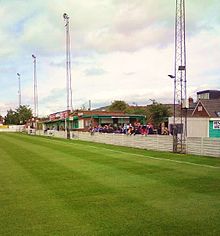Get the current calendar time as a value of type time _t. The function returns this value, and if the argument is not a null pointer , it also sets this value to the object pointed by timer. Following is the declaration for time () function.
The C date and time functions are a group of functions in the standard library of the C programming language implementing date and time manipulation operations. They provide support for time acquisition, conversion between date formats, and formatted output to strings. The time () function takes a pointer to time _t object as its argument and returns the current calendar time as a value of type time _t.
If arg is not a null pointer, the returned value is also stored in the object pointed to by arg. To get the number of seconds used by the CPU, you will need to divide by CLOCKS_PER_SEC. In today’s C programming language tutorial we take a look at how to use time and date from C programs. To make use of time and date function you need to include the time.

In each time zone, there is a different local time. There is a pragmatic need for one global time. One global time helps to avoid confusion about time zones and daylight saving time. The UTC (Universal Coordinated time ) was chosen to be the primary time standard. Info: We see the now variable being assigned to DateTime.
Next we will simply get the time on its own, and there are two ways to do so. This code example uses DateTime. The first method is LongTime and the second is ShortTime.

If the time value pointed to by the argument tp of clock_settime() is not a multiple of res, then it is truncated to a multiple of res. The functions clock_gettime () and clock_settime() retrieve and set the time of the specified clock clk_id. The time returned by gettimeofday () is affected by discontinuous jumps in the system time (e.g., if the system administrator manually changes the system time ). If you need a monotonically increasing clock, see clock_gettime(2). Get-Date can format the date and time in several. The functions gettimeofday () and settimeofday() can get and set the time as well as a timezone.
The following example uses the Now and UtcNow properties to retrieve the current local date and time and the current universal coordinated (UTC) date and time. It then uses the formatting conventions of a number of cultures to display the strings, along with the values of the their Kind properties. To calculate time taken by a process, we can use clock() function which is available time. We can call the clock function at the beginning and end of the code for which we measure time , subtract the values, and then divide by CLOCKS_PER_SEC (the number of clock ticks per second) to get processor time , like following.
Time Functions Example (The GNU C Library) Previous: Time Zone Functions, Up: Calendar Time. Here is an example program showing the. Try to avoid regular (frame) use of Time. It is more intended to supply the time the game has been running, and not time per frame.
Awake functions have finished. On systems where the C library time () wrapper function invokes an implementation provided by the vdso(7) (so that there is no trap into the kernel), an invalid address may instead trigger a SIGSEGV signal. We pass address of a structure varibale of type ( struct time ). Starting with C and with every library adde there are so many ways to get the date and time that people can easily get confused. Get Date and Time from a time server. There are several official Time Servers in the Internet, which provide time information.
And there are several formats and protocols used by these time services. The DAYTIME protocol, RFC-867.
No comments:
Post a Comment
Note: only a member of this blog may post a comment.